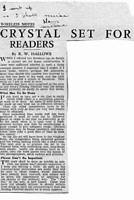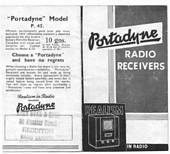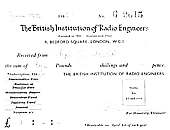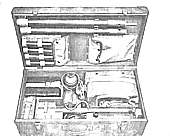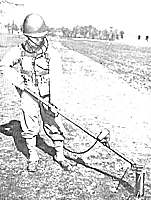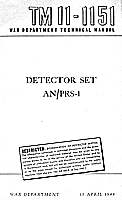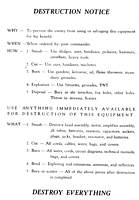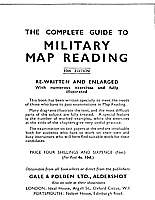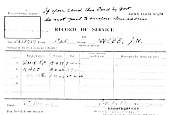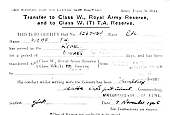|
|
The
following is from an article in Town & County News
, 1933, and describes the family business of Webbs of
Redditch : The firm's factory and mills contain a complete semi-automatic bread plant producing both ordinary bread and a special old-fashioned bread of the home-made type known as Paget bread. The fame of this latter bread is known in all parts of the country and the firm has many customers who are regularly sent supplies by post. Local customers within an area covered by a radius of some ten miles round Redditch are served by the firm's own fleet of motor vans. The other side of the business is devoted to corn milling. The mill is equipped with the latest mixing, milling, grinding, polishing and clipping machinery. It was the first concern in the district to produce mashes for poultry or pigs. Apart from those which it produces by its own methods it is also in the position to mix mashes of any kind to customers' own requirements. Mr E E Webb has had over forty years experience of this trade and is an acknowledged expert on all matters concerning feeding. |
|
|
These
are comments in letters from John's father (Ted) while John was
an apprentice at Harris & Matthews, seedmerchants: "We're soon to start on the Seed Time at the shop. Mrs Field is busy packing sweet peas (seed) and we will have all the catalogues to do during the week". "It is a useful idea that the Seed Act was printed on the packets, but otherwise Webb & Sons are quite as up-to-date (or more so)". "H&M's prices are rather high - if the same could be got here we would be able to retire next year, but there is not the competition like they get here. Webb & Sons have nothing to learn from H&M" |
|
|
While John was away in Abingdon, his brother Gordon kept him up to date with events back home and sent plans of the shack, also a detailed account of how a blow-lamp works. He was anxious about roofing the shack and hoped that John might be able to help with the wholesale purchase of "Ruberoid" which "is supposed to not want tarring" - "it is 3/9d per roll you would get it for about 3/3d I should think. Well anyhow 6 pence saved is worth having".
Further evidence of the brothers'
business sense is recorded when Gordon was instructed to sell
John's old chemistry sets to a school friend - "Jarvis
was very eager about them and wanted to buy them, just the chemistry
sets not the glass-blowing, for anything up to about 10/- but
then his eagerness died" and "by the way - I
have bagged your room." |
|
Return to text |
John
also received letters from his old school friends. He is thanked
for the loan of a book on mushroom growing, and informed that
one of his friends is intending to become a farmer, another wants
to join the Colonial Police, and a third is taking up a 5-year
apprenticeship with an electrical repair company. Galloways at
the top of New Street in Birmingham is recommended as a good
place for photographic bargains. From a modern perspective, the saddest comment from one friend is - "How are fags going down with you? I am still on Players and incidentally 2/- or 2/6d goes west with me per week on fags and it is no joke when one is not earning". During the Second World War these same young men would smoke as many cigarettes as they could lay their hands on, apparently ignorant of the health risks. John and both his brothers later died of smoking-related illnesses. |
|
|
John received other local news - "Uncle Wilf did the bread last week in record time, he said, but you know what he is with his methods, only using one oven". "Some ex-Admiral has been fined £27 for breaking down a 30mph sign in Alcester! ". |
|
|
John was issued with various
manuals during his time in the army - The Pistol in War;
Handbook of the Thompson Machine Gun, and Description,
Use and Mechanism of the Bren Light Machine Gun. Fortunately
he was not called upon to make use of this information, as his
interest in radio was noted, and was sent on a special training
course to become a radio engineer. He became a member of The
British Institution of Radio Engineers Among his books was a war department technical manual for the operation of a "Detector Set" dated April 1944. This manual was classed as "restricted matter" and includes the warning that the information in it may not be communicated to the public, but only to "persons of undoubted loyalty and discretion who are co-operating in Government work" and to "any person known to be in the service of the United States". The set was described as "a portable device for the detection of both metalic and non-metalic anti-tank mines". The first page gives advice on how to destroy the set, to prevent it being used by the enemy: |
|
Return to text |
John had always been interested
in maps, and was issued with a guide to map reading in wartime: While serving as radio engineer,
John was posted to Balkissock with 2 Field Park REME, which was
a Disinformation Unit. He was expected to keep quiet about
the activities of the unit, and only ever revealed one tantalising
snippet - that they recorded the sound of the hooves of a farmer's
herd of cattle so that the recording could be sent abroad to
convince the Nazis that a number of mules were on the
move somewhere in central Europe! It would be fascinating to
know how successful such deception was. He enjoyed developing
his knowledge of radio and the new radar techniques and was sometimes
sent out alone on a motor cycle to repair equipment in remote
parts of the country. |
|
|
The government had planned carefully for demobilisation as they were anxious to avoid the fiasco of the sudden return of men which had occurred after the war in 1918. The numbers released were staggered starting in May 1945, peaking in January 1946 (444,860 service men and women) and ending in January 1947, but which time a total of 4,337,100 had been discharged. John was demobbed on 8th November 1945, by being transferred to the Reserve - Class B release which allowed return to work of national importance (in this case, the supply of bread). Servicemen released early under this arrangement could technically be recalled if they left the job to which they had been directed. There were 9 Dispersal Units, and John was sent to the one at York. There he would have been issued with a drab demob suit, a shirt and tie, shoes, socks and raincoat. He would also have been given a few weeks' allowance, a one-way railway ticket, and a temporary 14 day ration card. Then his days in the army would be over, and his new life in "civvy street" began. |
|
|
This is the note of recommendation which John received on being demobbed from the army: Cpl. John Norman Webb joined this unit as a L/Cpl in January 1943 and was very soon promoted to Cpl. He has been in charge of the maintenance of one of the electrical and technical groups comprised in this unit and in this capacity he has discharged his duties, both technical and regimental with every satisfaction. His employment in this unit has included service in Italy and he is in all ways a thoroughly reliable N.C.O. with resourcefulness and confidence. I am pleased to recommend him for any suitable employment. |
|
|
"When
Daddy came Home"
is a book detailing the difficulties faced by demobbed servicemen
(and women) and their families as they struggled to adapt to
life in post-war Britain. "The jobs, the houses, the
support services to ease them back into civilian life - none
of it was in place. The folks they came back to were a battered
and blitzed lot; food shortages were acute …….." A report from Tory Office in December 1945 argued that: The nation is still suffering from a woeful shortage of food; the people of Britain are among the most badly clothed in Europe; a great variety of consumer goods are in shorter supply than during the war, while the queues outside the shops are longer than ever……. It also mentions the disastrous lack of housing and the chronic shortage of qualified teachers in schools. |
